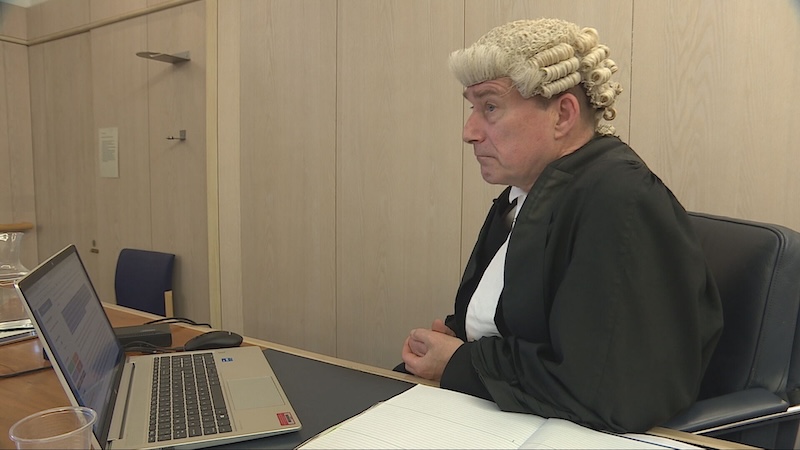Thought to be the only judge in the world to hear criminal cases using text-to-speech tech

A Scottish sheriff has become what is believed to be the first judge anywhere in the world to run a criminal courtroom using a computer-generated version of his own voice after motor neurone disease (MND) left him unable to speak.
Sheriff Alastair Carmichael, who sits at Dundee Sheriff Court, now delivers all rulings and directions through text-to-speech technology — a system he operates live from the bench. The digital voice, created while he could still speak, allows him to continue in a role he has spent his entire adult working life in.
Speaking to STV’s Scotland Tonight, the sheriff described the early signs of the illness, recalling that a “slight lisp” in 2023 was the first indication something was amiss. “My voice is now almost totally shot,” he said, explaining that MND has primarily affected his speech and swallowing, while he remains otherwise mobile.
Rather than step back, he worked with NHS Tayside specialists and voice-banking experts at SpeakUnique to build a personalised archive of recordings. These are now routed through four different text-to-speech systems as he types out everything he wants to say — in real time, in front of lawyers, jurors and defendants.
But the technology hasn’t been without quirks. At one point, two random American accents would occasionally jump into court business. A new system created by the Scottish Courts IT team now defaults to “George”, a British voice the sheriff jokes makes him sound “cultured and sophisticated”.
“When MND took my voice, I found another way to deliver justice”https://t.co/rkeWzyYNZg pic.twitter.com/V8nmXibPKf
— STV News (@STVNews) November 12, 2025
He avoids over-relying on canned phrases, warning that too much automation would make the courtroom feel “robotic and sterile”. Instead, he types almost everything manually, relying on phonetic spellings and lightning-fast reactions to keep up with the pace of proceedings.
Inevitably, the occasional error slips through. He recalls once accidentally dismissing a witness mid-questioning after hitting the wrong key which he likens to the verbal slip-ups everyone makes. “You correct the mistake and carry on,” he said.
Sheriff Principal Gillian Wade, who oversees the region, admitted she initially expected discussions around retirement or reduced duties when he disclosed his diagnosis. Instead, she told Scotland Tonight that he has continued to work “as fully as possible”, taking only the odd day for medical appointments.
Outside court, he remains active, even still playing golf. While candid about the uncertainty of MND, he says he prefers to focus on making the best use of his time: “Even if your natural voice is stuffed, you can find other ways to communicate and to carry on working.”
He credits the support he has received — from medical teams, court staff and family–— with enabling him to remain on the bench. If others in similar situations take something positive from his approach, he said, “that would give me huge pleasure”.